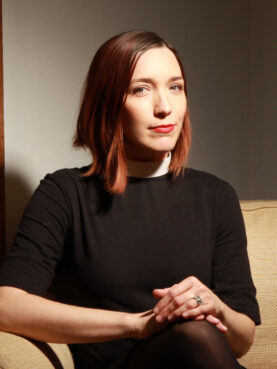Clergy, parents file suit against Louisiana Ten Commandments law
WASHINGTON (RNS) — A group of public school parents, including some clergy, have filed a lawsuit against Louisiana’s new law mandating the display of the Ten Commandments in public schools, arguing the statute unfairly privileges a specific version of Christian scripture in addition to impinging on the rights of the nonreligious and those of other faiths.
The complaint — which was filed Monday (June 24) by Americans United for the Separation of Church and State, the Freedom From Religion Foundation, and offices of the ACLU — singles out a bill signed into law last week that requires public schools to post copies of the Ten Commandments in classrooms, paid for by donations. Plaintiffs argue the law violates their First Amendment right to religious freedom as well as the U.S. Constitution’s prohibition against establishing a state religion.
“This simply cannot be reconciled with the fundamental religious-freedom principles that animated the founding of our nation,” reads the complaint, which notes no federal court has upheld the display of the Ten Commandments in a public school setting.
The Rev. Jeff Sims, a Presbyterian Church (USA) minister and a plaintiff in the case, blasted the law during a press conference on Monday, saying it “sends a message to my children and other students that people of some religious denominations are superior to others.”

The Rev. Darcy Roake. (Photo via Tulane University)
“This is religious favoritism, and it is not only dangerous, but runs counter to my religion and faith,” said Sims, who is one of at least three Christian clergy who have signed on to the case.
Also among the plaintiffs — which include religious and non-religious parents — is the Rev. Darcy Roake, a Unitarian Universalist minister who told reporters that among her faith tradition’s seven principles is a call for “the right to a free and responsible search for truth and meaning.”
“By subjecting my children to permanent displays of scripture in every classroom, the Ten Commandments conflicts with this principle,” she said.
Roake added that her husband, who is also a plaintiff in the case, is Jewish and that they have raised their children in a multi-faith household.
“My husband believes this state-mandated version of the Ten Commandments does not conform with his Jewish faith either, because the displays misappropriate and alter the text of the Ten Commandments as they are set out in the Torah,” she said.
The complaint argues that by mandating the display of the Ten Commandments, Louisiana effectively “requires a specific, state-approved version of that scripture to be posted, taking sides on theological questions regarding the correct content and meaning of the Decalogue.” It notes the diversity of opinion regarding the scripture in question, including a wide array of religious traditions that do ascribe to the Ten Commandments, but their translation, numbering and wording of the passage varies widely.
The arguments outlined in the complaint echo those voiced last year when state lawmakers in Texas launched an unsuccessful attempt to pass similar legislation. At the time, Jewish leaders noted that the bill required the Ten Commandments to be listed in English (both the Louisiana law and the Texas bill use the same translation, which is based on the King James translation of the Bible popular with some Protestants) and not the original Hebrew.
During Monday’s press conference, Rachel Laser, head of Americans United for the Separation of Church and State, pointed out that several other states — Oklahoma, Mississippi and South Carolina — have introduced similar bills, calling such efforts examples of the “Christian nationalism that is on the march across this country.” She noted Texas has also already passed a law allowing public schools to enlist chaplains and that other states are primed to do the same.

Rachel Laser. (Photo by Rick Reinhard)
“These Christian nationalist laws violate the religious freedom principles that are core to this country’s founding, that everyone should be free to live as themselves and believe as they choose, so long as they don’t harm others,” she said.
The legal team behind the effort expressed confidence they would prevail should the case rise to the U.S. Supreme Court. Patrick Elliott, legal director for the Freedom From Religion Foundation, told reporters he believes the issues in the case are “already covered by clear Supreme Court precedent” and that justices may not even take up the case.
Supporters of the law have argued otherwise, with Louisiana Gov. Jeff Landry reportedly telling attendees at a GOP fundraiser, “I can’t wait to be sued.” And at least two conservative justices have signaled a fundamentally different understanding of the separation of church and state than their colleagues on the bench: In 2020, Justices Clarence Thomas and Neil Gorsuch signed on to a concurring opinion that suggested the establishment clause only applies to the federal government and not the states.
But even if justices decide to rule on the case, Elliott said he was confident his team would win.
“I think looking at many, many years of Supreme Court precedent, there’s extreme concern about coercive religious practices on children,” he said. “So I don’t really think even for the current makeup of the court (that they) would rule against our plaintiffs in this case.”




